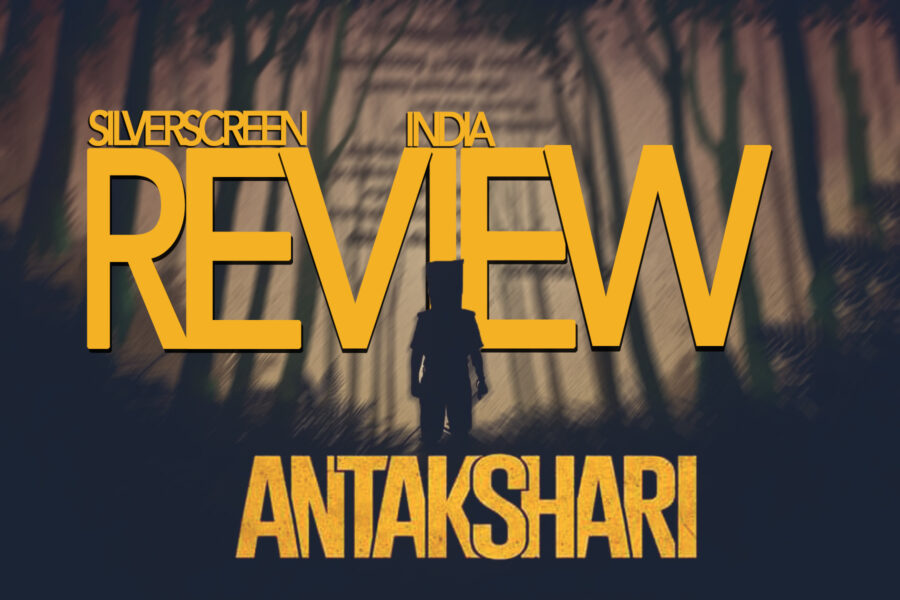In Antakshari, directed by Vipin Das, Saiju Kurup plays Das, a police officer with a little quirk ﹣he is obsessed with antakshari, the game in which the participants have to build a chain of songs. He plays it at home with his daughter and wife (Priyanka Nair). At the police station, civilians who come to report their grievances are forced to join this game session and sing old Malayalam film songs until he wants them to stop. Then, one day, a stranger with a similar but vicious obsession gets in touch with him, threatening to harm him and his family.
Vipin Das’ crime drama revolves around this obsession shared by these two men, with building a sequence. Das’s love for antakshari helps him stay levelheaded in the hyper-masculine and corrupt police force. The stranger, who has a series of murders under his belt, derives a sense of purpose in life in this persistent pursuit of his next victim. Eventually, what breaks him is the realisation that the sequence he had been carefully building, is destroyed forever. A fascinating idea that, unfortunately, does not get the treatment that it deserves.
In all fairness, there is a lot to like about Antakshari. The writing looks into memories metamorphosing into trauma, a constant sense of fear gradually transforming into courage. Vipin Das builds the atmospherics and creates a perpetual state of tension without relying too much on the background score or the visual effects. There are blood and scenes of violent killings, but the most terrifying element in the film is the sense of foreboding in the air. The killer does not appear in the narrative for a long time after the opening scene, yet the film makes one uncomfortable. The police system, ridden with corruption and casteism, stifles the voices of its people. The most chilling moment in the movie is when a senior constable (Kottayam Ramesh), while taking down the statement of a young girl, changes from genial to cold-blooded out of the blue. The camera is fixed on his face the whole time, intimating the viewers of the violence the guardians of the law are capable of.
Also, the film, instead of investing in cheapening murder and violence using an excess of stylistic elements, diverts its energy into fleshing out the characters. Das is reticent, a family man who goes befuddled when he comes to know that his daughter was attacked by his archenemy. He seldom screams, wins a physical fight or flaunts a gun. What works against him at his workplace is his caste status and his quiet but firm sense of justice. Ironically, the killer he must fight is a product of casteism, a victim of barbaric caste-based violence.
Interestingly, at the centre of the film’s mystery is an object, a motorcycle, something the pop culture romanticises as the icon of boyhood. A little boy who lives in a hut on the outskirts of a village, yearns to ride on this shiny vehicle he sights every day on his way to school. A police officer who grew up in a poor lower-caste household proudly smiles when handed over the key to his first motorcycle. In Antakshari, this object of masculine desire becomes the epicentre of a wave of death.
Despite these impressive narrative elements, Antakshari falls short. It has numerous sub-characters and glimpses of several sub-plots about abuse and trauma ﹣ enough material to stretch out the narrative into a web series of many episodes ﹣none of which reach their completion. For one, the film often cuts to a young woman whose striking looks, mysterious gaze and a backstory about abuse must pique the viewer’s curiosity. However, she vanishes in the latter half of the film without attaining closure. Vijay Babu’s Vasudevan, a local politician who vehemently dislikes Das, gets a thumping introduction as a powerful villain and soon shrinks into nothing.
The narrative unevenly crisscrosses past and present, leaving the point of interconnection between the timelines vague. The film suffers serious pacing issues, lingering on a shot or a scene for too long to inform the viewer of the brutality the character just witnessed or is about to undergo. Counterintuitively, this approach only breaks the rhythm of the narrative and makes the viewer lose their patience.
Recommended
Saiju Kurup is a highly malleable actor who easily fits into any character. As Das, he is passable, nothing to write home about. But it isn’t entirely Kurup’s fault. The screenplay and the film’s stern realism offer him little chance to be anything but functional. The most disappointing part of the film is how it ends. Vipin Das builds the story of a serial killer with sociological and psychological insights, only to bring him down through a fight, a mainstream cinema cliché. In a lazily-written final scene, the film welds mental aberration with evil. In a world where toxic masculinity and casteism rule the roost, it seems gravely unjust to project a lonely old man’s empty desire for vengeance as the disaster one should be fear.
****
This Antakshari review is a Silverscreen original article. It was not paid for or commissioned by anyone associated with the movie. Silverscreen.in and its writers do not have any commercial relationship with movies that are reviewed on the site.



